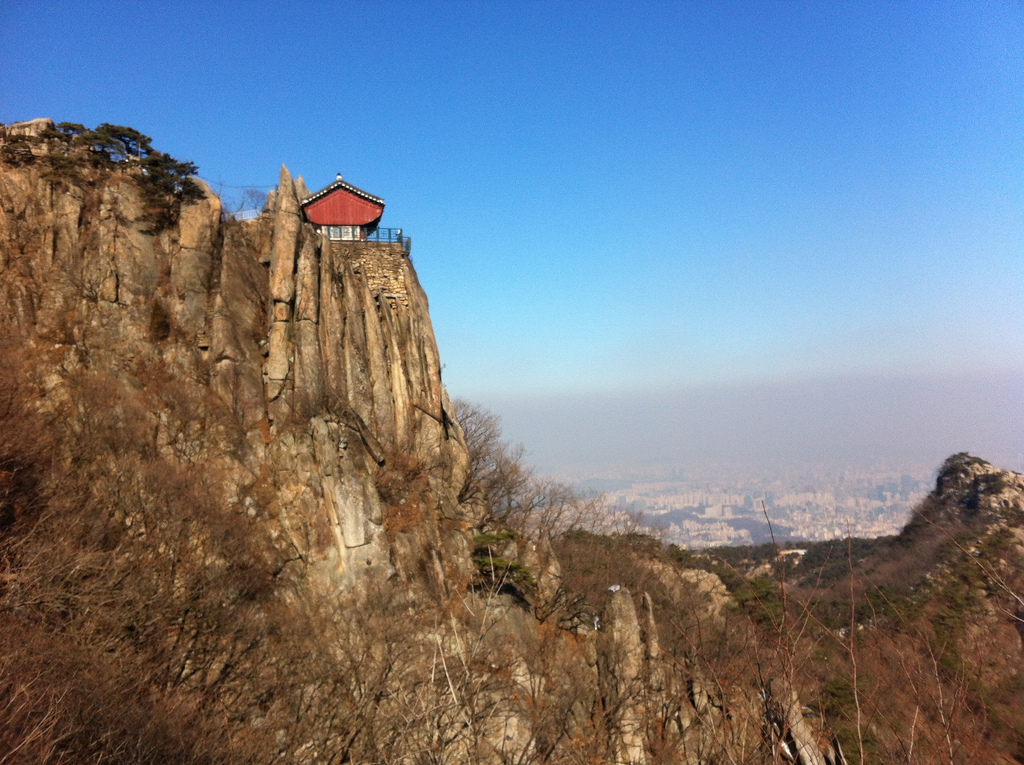As I mentioned in my previous post, I am relatively enamored with the transformative effects of audio on understanding and sensemaking in new environments. I had written about how you can know a place to a point through images and maps (Street View in particular), but audio transforms that knowledge, injects it with an urgency, a sublime, often tranquil sense of place. Audio floods every crevice, every nook of understanding.
I decided to test this out a bit yesterday. I traveled to the south of Seoul to meet with friends and climb a mountain (mostly hike) called Gwanaksan (관악산). Gwanaksan is a considerable hike (took us about 4 hours) and a wonderful way to get some exercise. Mountains are found throughout and around Seoul and it is a favorite pastime of many, generally older people who climb daily.
Along the way, from the subway to the mountain to the taxi I took home, I recorded audio using Audioboo using my iPhone in a general attempt to capture the space of Seoul aurally. I wanted to get at the ambient backbone of the city, the hustle and bustle of the subways transposed against the expansive mountain capped with the rhythmic serenity of the taxi ride home. Audio recordings allow me to tell this story in a way that activates imagination (with only audio and without imagery, you would attempt to fill in the physical visual domain almost reflexively) and refines understanding.
Stage 1: The Subway
This was the subway ride from my home in Mapo (마포) to Nakseongdae (낙성대). Fill in the story as you see fit, but for me these sounds paint an environment of structure and space, of being help held attentive collectively by a common journey, of signals and directions.
http://abfiles.s3.amazonaws.com/swf/fullsize_player.swf
Stage 2: The Mountain
From Nakseongdae, we proceed to make our way up Gwanaksan over a course of 4 hours. We hiked, stopped, marveled at older Koreans who didn’t seem to be struggling in the least. There is wonderful camaraderie up on a mountain with people connected by a familiar pastime. I say this as an absolute positive, but to me (and this is simplistic, granted), but Koreans are a mountain people and they seem comfortable there, at peace. The ambient sound I recorded from the mountain hopefully projects that a bit. The chanting you hear is from the Buddhist temple at the summit in the picture above.
http://abfiles.s3.amazonaws.com/swf/fullsize_player.swf
Stage 3: The Taxi Home
After a long climb and a good meal of galbi (갈비), my friends and I parted and I jumped in a taxi for the 15 minute ride home. These taxi rides are wonderfully tranquil moments (if the driver is good), the warmth of the car transposed against the frigid cold outside, the gentle hum of the engine, the repetitive strips on the road zipping past in time. A language of sanctuary. I think a lot of that comes through in this recording.
http://abfiles.s3.amazonaws.com/swf/fullsize_player.swf
I am going to record Seoul as often as possible with audio, video, and images, map it, and reuse it a bit. I also need to research more on the use of audio in elearning/mlearning as a contextualization agent as well as an emotive one. I think there is quite a bit of material to be mined there.

